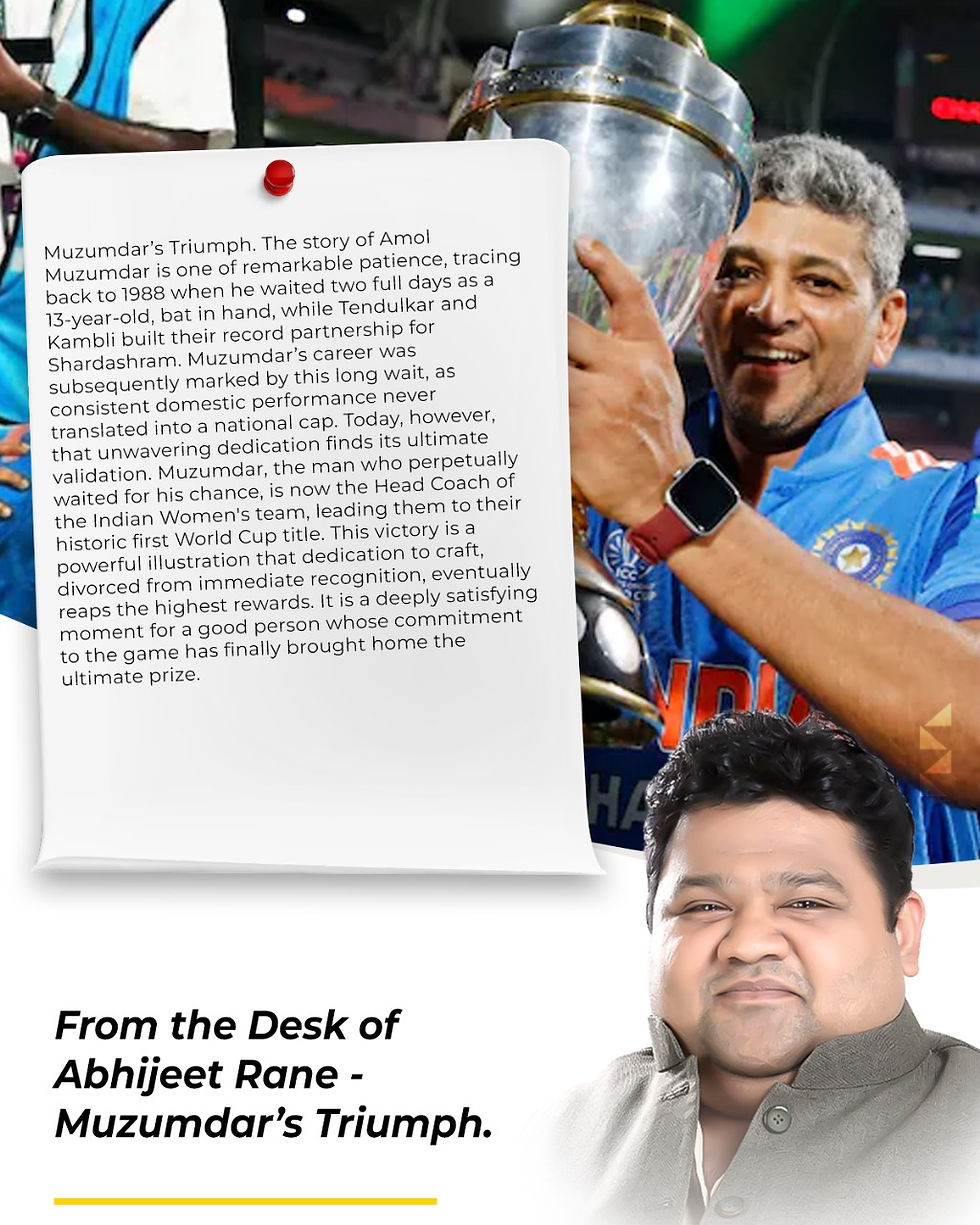🖋️ From The Desk of Abhijeet Rane
- dhadakkamgarunion0
- Nov 4, 2025
- 3 min read
🖋️ From The Desk of Abhijeet Rane
Revocation of Sanad: Upholding Professional Integrity. The revocation of a lawyer's 'Sanad' (license) is a grave measure governed by the Advocates Act, 1961, specifically Sections 35 to 38. This action is reserved for serious misconduct, such as violating professional ethics, misleading clients or the court, using forged documents, contempt of court, or criminal acts. The case involving Advocate Asim Sarode highlights the stringent expectations on legal professionals. His public remarks that "the Governor is worthless" and that "the judiciary is under government pressure," as verified by a committee led by Adv. Vivekand Ghatge, were deemed a violation of his ethical and legal duty. As an "officer of the court," a lawyer must maintain decorum, restraint, and respect for the judicial system and constitutional posts to prevent public distrust. The State Bar Council initiates an inquiry, gives the lawyer a chance to defend themselves, and can permanently remove the name or suspend the Sanad if guilt is proven. Advocate Sarode now has the option to appeal this decision to the Supreme Court.
🔽
🖋️ From The Desk of Abhijeet Rane
Questioning Today's Opposition. The current political outcry against 'lateral entry' appointments rings hollow when examined against the UPA era's precedents. The appointment of Pankaj Pachauri, an NDTV editor, as OSD to PM Manmohan Singh, reportedly required bending existing service rules. This move exemplified an appointment bypassing standard eligibility criteria. Moreover, the existence of the National Advisory Council (NAC), chaired by Sonia Gandhi and granting Cabinet Secretary status to its members, demonstrated a significant use of non-constitutional power centers. When leaders who oversaw such appointments now vehemently protest similar measures, it exposes a stark political hypocrisy. This critique is not based on principle, but on the loss of power, turning their opposition into mere partisan anger rather than consistent governance standards.
🔽
🖋️ From The Desk of Abhijeet Rane
The CAA Effect and the NRC Showdown. The initial fervor against the CAA—framed as a threat to existing citizens—has cooled, as the law’s function as a specific citizenship granting mechanism for persecuted non-Muslims became clear. The narrative has now pivoted to the Special Voter List Revision (SIR). The opposition's move to challenge the SIR in the Supreme Court, after initially fueling fears about voter fraud, has backfired. The Supreme Court affirmed the ECI’s constitutional mandate to conduct the revision, especially given the lapse since 2003. West Bengal's resistance to this cleanup, suggesting reliance on irregular voters, reveals the core political anxiety. This deadlock has potentially paved the way for constitutional intervention (Article 356), signaling a major political showdown where legal procedure is now the central battleground against entrenched political interests.
🔽
🖋️ From The Desk of Abhijeet Rane
Muzumdar’s Triumph. The story of Amol Muzumdar is one of remarkable patience, tracing back to 1988 when he waited two full days as a 13-year-old, bat in hand, while Tendulkar and Kambli built their record partnership for Shardashram. Muzumdar’s career was subsequently marked by this long wait, as consistent domestic performance never translated into a national cap. Today, however, that unwavering dedication finds its ultimate validation. Muzumdar, the man who perpetually waited for his chance, is now the Head Coach of the Indian Women's team, leading them to their historic first World Cup title. This victory is a powerful illustration that dedication to craft, divorced from immediate recognition, eventually reaps the highest rewards. It is a deeply satisfying moment for a good person whose commitment to the game has finally brought home the ultimate prize.
🔽
🖋️ From The Desk of Abhijeet Rane
The Enforcement Directorate's (ED) recent, massive seizure of over ₹7,000 crore in assets, including the residence of Anil Ambani, presents a profound challenge to the political narrative of crony capitalism. For years, opposition leaders, most notably Rahul Gandhi, have fiercely alleged that the Modi government uses state machinery to aid the Ambani group—a claim often rooted in the Rafale contract controversy. Yet, the ED’s decisive and aggressive action against a key figure in this narrative directly contradicts the accusation that the agency is a mere "government tool" protecting ruling party allies. The fact that an agency, frequently criticized as being partisan, has taken such a high-value enforcement step complicates the opposition’s claims of undue favoritism. Their current silence on the matter is telling, suggesting the ED’s move is a powerful assertion of law that undermines their core political attack line.
🔽
#AdvocateEthics #AsimSarodeCase #BarCouncil #JudicialDecorum #LateralEntry #PoliticalHypocrisy #UPAGovernance #CAANRC #VoterListRevision #ConstitutionalShowdown #AmolMuzumdar #WomensWorldCup #DedicationPays #EnforcementDirectorate #CronyCapitalismMyth #RuleOfLaw #AbhijeetRane #FromTheDeskOfAbhijeetRane












Comments